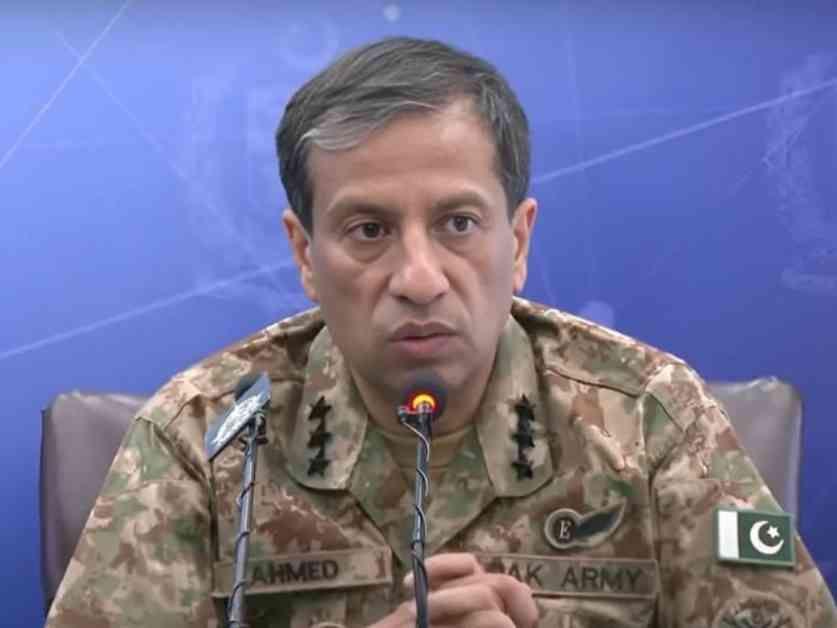Director General of the Inter-Services Public Relations (ISPR), Lieutenant General Ahmed Sharif, recently addressed the media regarding the Jaffar Express attack, shedding light on India’s involvement in sponsoring terrorism in Balochistan. During a joint press conference in Islamabad alongside Balochistan Chief Minister Sarfraz Bugti, Lt. Gen. Sharif accused Indian outlets of spreading misinformation by sharing AI-generated videos that misrepresented the terrorists’ actions.
The incident revolved around the attack on the Jaffar Express, a train traveling from Quetta to Peshawar. The train fell victim to separatist militants from the Baloch Liberation Army (BLA) in the Dhadar region of the Bolan Pass. Over 400 passengers were held hostage during this traumatic event, with security forces stepping in to rescue them and neutralize the assailants in a successful counter-terrorism operation.
The attack unfolded as the train was halted by an improvised explosive device (IED) in a mountainous area around 1 pm. Prior to this, militants had targeted a Frontier Corps (FC) checkpost, resulting in the death of three soldiers. The BLA militants, positioned strategically in various groups, took passengers hostage, segregating women and children within the train while leading the remaining hostages to different locations outside.
Amidst the chaos, a group of hostages was released based on ethnicity, further complicating the situation and escalating existing tensions. Following these events, a well-coordinated rescue operation was launched on March 12, with security forces surrounding the area and engaging the militants in a firefight. Despite the challenges posed by the treacherous terrain and presence of suicide bombers, the forces executed the mission with precision, ensuring that no hostages lost their lives during the operation.
Lt. Gen. Sharif underscored the regional dynamics at play, emphasizing Afghanistan’s role in supporting terrorist activities within Pakistan. He highlighted the connection between Afghan-trained militants and the assailants involved in the Jaffar Express attack, suggesting that the masterminds behind such violent acts were situated near Pakistan’s northern border. Additionally, he pointed out the implications of the withdrawal of foreign forces from Afghanistan, which inadvertently furnished militants with sophisticated equipment, including night-vision devices.
In a bold assertion, the DG ISPR attributed the ongoing unrest in Balochistan to India, characterizing it as the primary sponsor of terrorism in the region. He condemned the attack on the Jaffar Express as a manifestation of India’s terrorist agenda, aligning it with past incidents fueled by Indian intelligence services. Furthermore, Lt. Gen. Sharif brought attention to the orchestrated information warfare campaign led by Indian media in support of the BLA, utilizing AI-generated footage to propagate their narrative.
The press conference also featured the testimony of Indian spy Kulbhushan Jadhav, who was apprehended in Balochistan, serving as tangible evidence of India’s meddling in the region’s affairs. Balochistan’s Chief Minister echoed these sentiments, expressing gratitude for the international community’s condemnation of the train attack while unequivocally denouncing the BLA as terrorists. He disassociated the group from the Baloch people, emphasizing that their allegiance to India’s intelligence agency, RAW, overshadowed any claims of pursuing liberal ideals.
In conclusion, the Jaffar Express attack stands as a stark reminder of the complex web of regional politics and the enduring threat of terrorism. Lt. Gen. Sharif’s revelations shed light on the underlying forces at play, urging stakeholders to remain vigilant and united against external forces seeking to destabilize the region. As the aftermath of the attack unfolds, the need for transparency, cooperation, and swift action remains paramount in safeguarding the peace and security of Balochistan.









